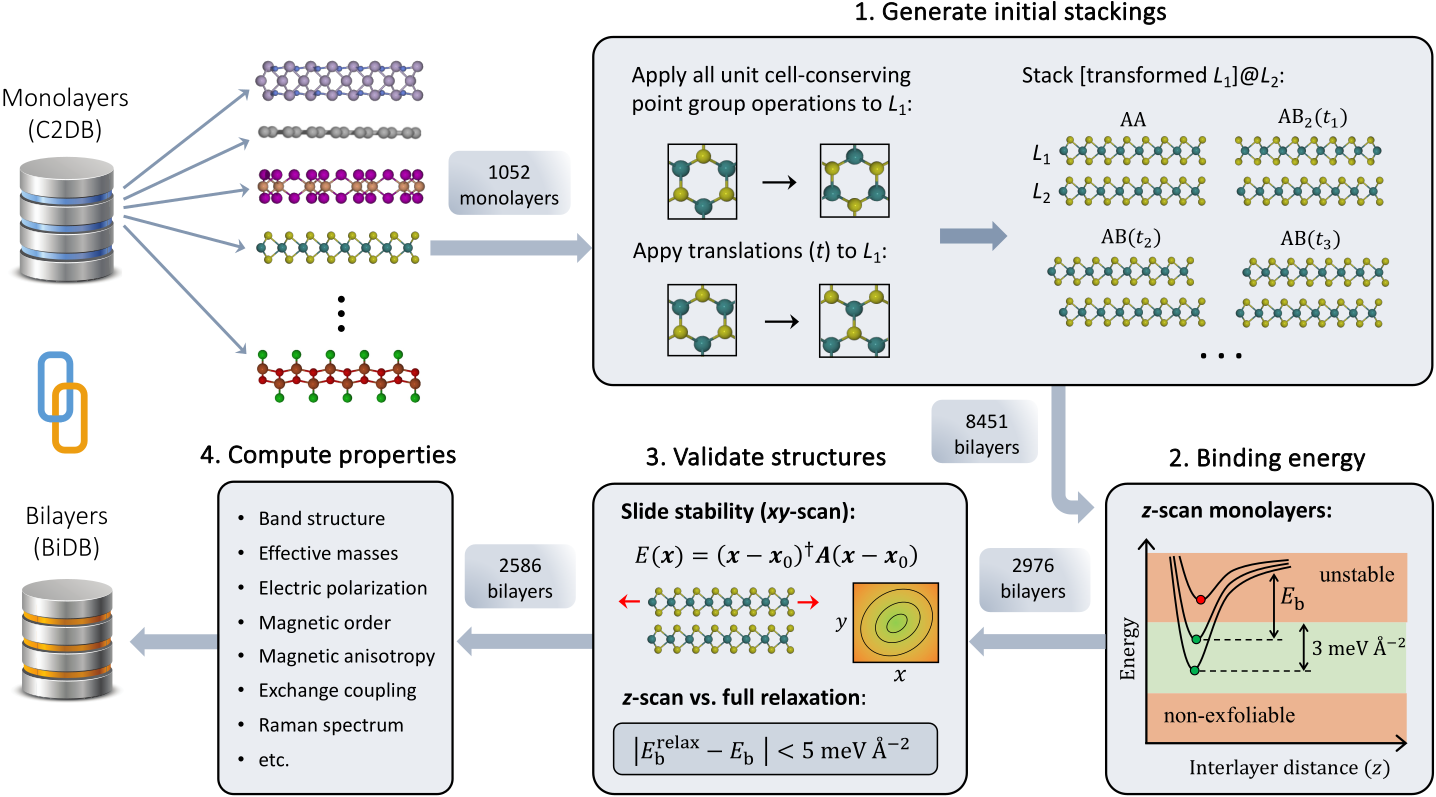High-throughput computational stacking reveals emergent properties in natural van der Waals bilayers
Sahar Pakdel, Asbjørn Rasmussen, Alireza Taghizadeh, Mads Kruse, Thomas Olsen, Kristian S. Thygesen
Nat Commun 15, 932 (2024)
If you are using data from this database in your research, please cite the following paper:
High-throughput computational stacking reveals emergent properties in natural van der Waals bilayers
Sahar Pakdel, Asbjørn Rasmussen, Alireza Taghizadeh, Mads Kruse, Thomas Olsen, Kristian S. Thygesen
Nat Commun 15, 932 (2024)
Download data: bidb.db

Stacking of two-dimensional (2D) materials has emerged as a facile strategy for realising exotic quantum states of matter and engineering electronic properties. Yet, developments beyond the proof-of-principle level are impeded by the vast size of the configuration space defined by layer combinations and stacking orders. Here we employ a density functional theory (DFT) workflow to calculate interlayer binding energies of 8451 homobilayers created by stacking 1052 different monolayers in various configurations. Analysis of the stacking orders in 247 experimentally known van der Waals crystals is used to validate the workflow and determine the criteria for realizable bilayers. For the 2586 most stable bilayer systems, we calculate a range of electronic, magnetic, and vibrational properties, and explore general trends and anomalies. We identify an abundance of bistable bilayers with stacking order-dependent magnetic or electrical polarisation states making them candidates for slidetronics applications.
key |
descriprion |
unit |
|---|---|---|
|
Binding energy (zscan) |
|
|
Number of layers |
|
|
Monolayer ID |
|
|
Bilayer ID |
|
|
Dynamically stable |
|
|
Magnetic |
|
|
Interlayer magnetic state |
|
|
Interlayer magnetic exchange |
|
|
Slide Stability |
|
|
Binding Energy (gs) |
meV/Å\(^2\) |
|
Energy above convex hull |
eV/atom |
|
Band gap (PBE) |
|
|
ICSD id of parent bulk structure |
|
|
COD id of parent bulk structure |
|
|
Layer group |
|
|
Layer group number |
|
|
Space group |
|
|
Space group number |
|
|
Distance |
Å |
…